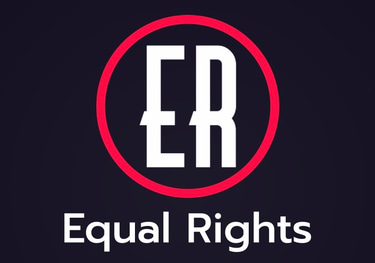Empowering Immigrant Communities:
Access to Resources & Support
Kylo B
4/19/2024
Empowering Immigrant Communities: Access to Resources & Support
Immigrant communities contribute significantly to the cultural, social, and economic fabric of society.
However, immigrants often face unique challenges and barriers that impact their well-being and integration.
Empowering immigrant communities involves providing equitable access to resources, support services, and opportunities that enable immigrants to thrive and contribute to their new homes.
In this article, we explore the importance of empowering immigrant communities and highlight strategies to enhance access to resources and support.
Challenges Faced by Immigrant Communities
Immigrants encounter various challenges as they navigate life in a new country:
Language Barriers: Limited English proficiency can hinder access to essential services and information.
Legal Status Concerns: Undocumented immigrants may face fear of deportation and limited access to rights and benefits.
Employment Discrimination: Immigrants often encounter employment discrimination, exploitation, and lack of recognition of foreign credentials.
Healthcare Access: Immigrants may face barriers to accessing healthcare services due to insurance limitations or cultural differences.
Social Isolation: Cultural differences and lack of social networks can contribute to feelings of isolation and disconnection.
Empowerment Through Access to Resources
Empowering immigrant communities involves addressing these challenges through increased access to resources and support:
Language Services: Providing interpretation and translation services to facilitate access to education, healthcare, legal services, and government resources.
Legal Aid & Immigration Services: Offering legal assistance, know-your-rights workshops, and immigration clinics to address legal concerns and provide support to immigrants.
Employment & Skills Development: Offering job training, career counseling, and language classes to enhance employability and economic self-sufficiency.
Healthcare Navigation: Assisting immigrants in navigating healthcare systems, providing culturally competent care, and promoting preventive health services.
Community Engagement: Creating inclusive community spaces, cultural events, and support groups to foster social connections and belonging.
Education Access: Ensuring equitable access to quality education for immigrant children and adults through language support and educational programs.
Community Organizations & Support Services
Numerous organizations and initiatives are dedicated to empowering immigrant communities:
Immigrant Rights Advocacy Groups: Organizations like the American Civil Liberties Union (ACLU) and United We Dream advocate for immigrant rights and provide support services.
Community Centers: Ethnic community centers and immigrant-serving organizations offer a range of services, including legal aid, education programs, and cultural activities.
Health Clinics: Community health centers and clinics provide culturally competent healthcare services tailored to immigrant populations.
Employment & Skills Programs: Job training programs, workforce development initiatives, and entrepreneurship support help immigrants secure stable employment and economic opportunities.
Promoting Inclusive Policies & Advocacy
Empowering immigrant communities also involves advocating for inclusive policies and practices:
Comprehensive Immigration Reform: Advocating for policies that provide pathways to citizenship, protect immigrant rights, and ensure humane treatment of immigrants.
Anti-Discrimination Laws: Supporting legislation that prohibits discrimination based on immigration status and protects immigrants from exploitation and abuse.
Access to Social Services: Ensuring equitable access to social safety net programs, regardless of immigration status, to address basic needs and promote well-being.
Empowering immigrant communities is essential for building inclusive, diverse, and thriving societies.
By enhancing access to resources, support services, and opportunities, we can create environments where immigrants can fully contribute and participate in their communities.
Collaboration among policymakers, community leaders, service providers, and advocates is key to advancing immigrant empowerment and promoting social justice. Together, let us work towards a future where all immigrants are valued, respected, and empowered to achieve their aspirations and fulfill their potential.
